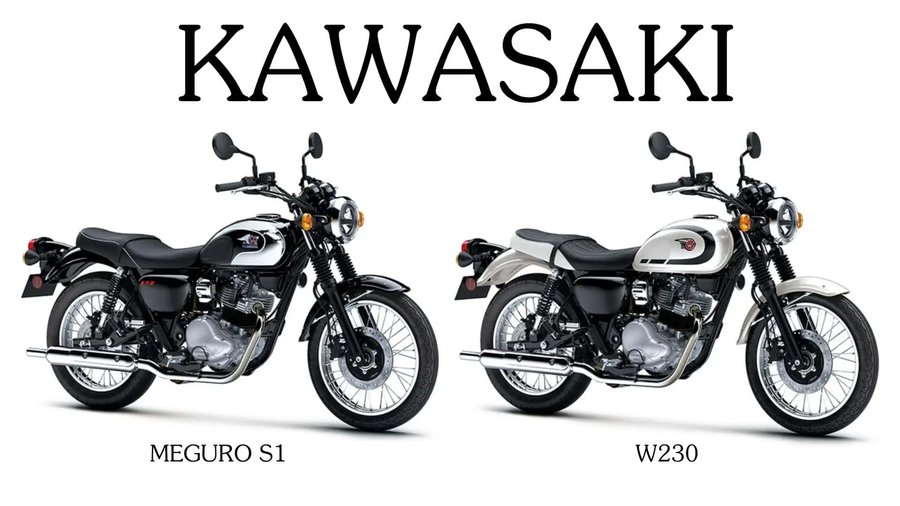Check Out Kawasaki’s Meguro S1 and W230, What Neo-Retro Motorcycles Should Be

In the context of the modern motorcycle market, the name Meguro may not mean much to anyone.
But as it would turn out, Meguro was, in one way or another, responsible for a lot of what motorcycles have become today. It finds its roots way back in Japan, being one of the first motorcycle companies to emerge from the country back in 1924.
Now, a century later, Kawasaki (who absorbed the Meguro brand back in the 1960s) pays tribute to the historic Japanese marque by launching the Meguro S1, a small-displacement, single-cylinder-powered, neo-retro roadster based on the W230, a bike with similar retro styling. As of now, this model is exclusive to the Thai market, and makes perfect sense as a stylish all-around commuter for the rider who wants to stand out in the sea of boring scooters and commuters.
On paper, the Meguro S1 is as simple as it gets. Powered by an air-cooled, fuel-injected thumper, it does just enough to make it pass modern-day emissions standards. But clearly, it isn’t in tech or performance where the Meguro S1 shines; it’s in its style and heritage.
Both the Meguro S1 and the W230 on which it’s based pay tribute to the classic styling of the 50s and 60s. They’re pretty much how a motorcycle has been envisioned for decades—a round headlight, teardrop-shaped fuel tank, and spoked wheels.
And in true Kawasaki fashion, it didn’t come up with some half-baked retro-inspired machine. The Meguro S1 and W230 go all-in with their classic inspiration, featuring a traditional dual analog gauge cluster, fork gaiters, and bodywork that’s been designed to match the 1964 Kawasaki Meguro SG to a tee.
The only telltale sign that these bikes are pieces of machinery of the modern era is the multifunction LCD screen on the left gauge pod which displays a trip meter, odometer, and clock. Other than that, these bikes are as analog as they get.
With so many new motorcycles focusing on tech and features flooding the market, it’s clear to see that the Kawasaki Meguro S1 and W230 are a rare breed. They’re classic-inspired offerings with the goods to back up the heritage they’re fronting, and they paint a good picture of how motorcycling once was, and perhaps, how it should be.
Nouvelles connexes


